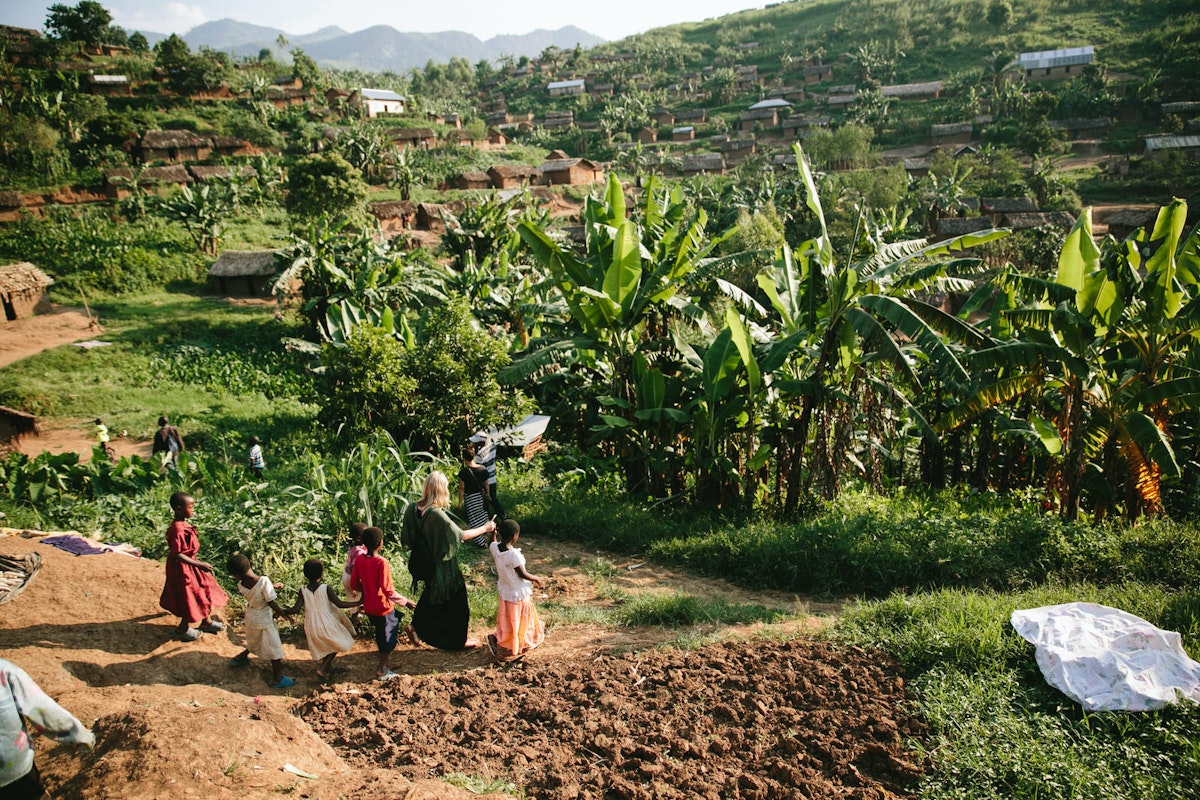For virtually any problem, there will always be band-aid solutions. The fixes that ease the symptoms, relieve some pressure, make the current moment a little lighter. And as vital as these are, it is all the more inspiring to see individuals and organizations cutting to the root of major crises, and finding creative solutions to put them to an end. Enter, Justice Rising. Cassandra Lee, Founding Director, wanted to find a way to disrupt the cycle of war, and found a sustainable solution by investing in the future of the very communities stricken with violence: education. I was so honored to hear more from Cassandra about her story behind starting Justice Rising, the incredible impact of education they have already seen, and how we as individuals can meaningfully create impact in the world. Check out her interview below, and hear from her in person at our upcoming 2018 Yellow Conference where she will be speaking!
Tell us a bit about the incredible work you do at Justice Rising!
I co-founded Justice Rising in 2015 to use education to disrupt cycles of war and combat extremist ideologies in conflict areas of the world. I remember for years seeing the wars raging around the world, children suffering, and communities crumbling due to the conflict raging and I knew we had to respond in a way that could interrupt that, and invest in long-term change for those countries.
Education has the power to break cycles of extremism, poverty, and conflict, and ultimately restore every war-affected nation back to peace.
Education can increase economic opportunity, reduce child marriage/militia recruitment rates, and promote a more democratic, peaceful way of approaching problems.
Our response was to invest in education based interventions. We build schools in areas where children are lacking quality education opportunities, and then work closely with the community to develop specialized programs designed to empower children and their families, while creating sustainable jobs and developing community leaders. We have 7 schools in the war torn Democratic Republic of Congo to date, and are working on schools 8 and 9 which are slated to open this September. We’ve also expanded our focus to include schools in Iraq and Syria.
Right now we’re working towards our Vision 2020 goal: building 40 schools in war torn communities to reach more than 6,000 children by the year 2020.
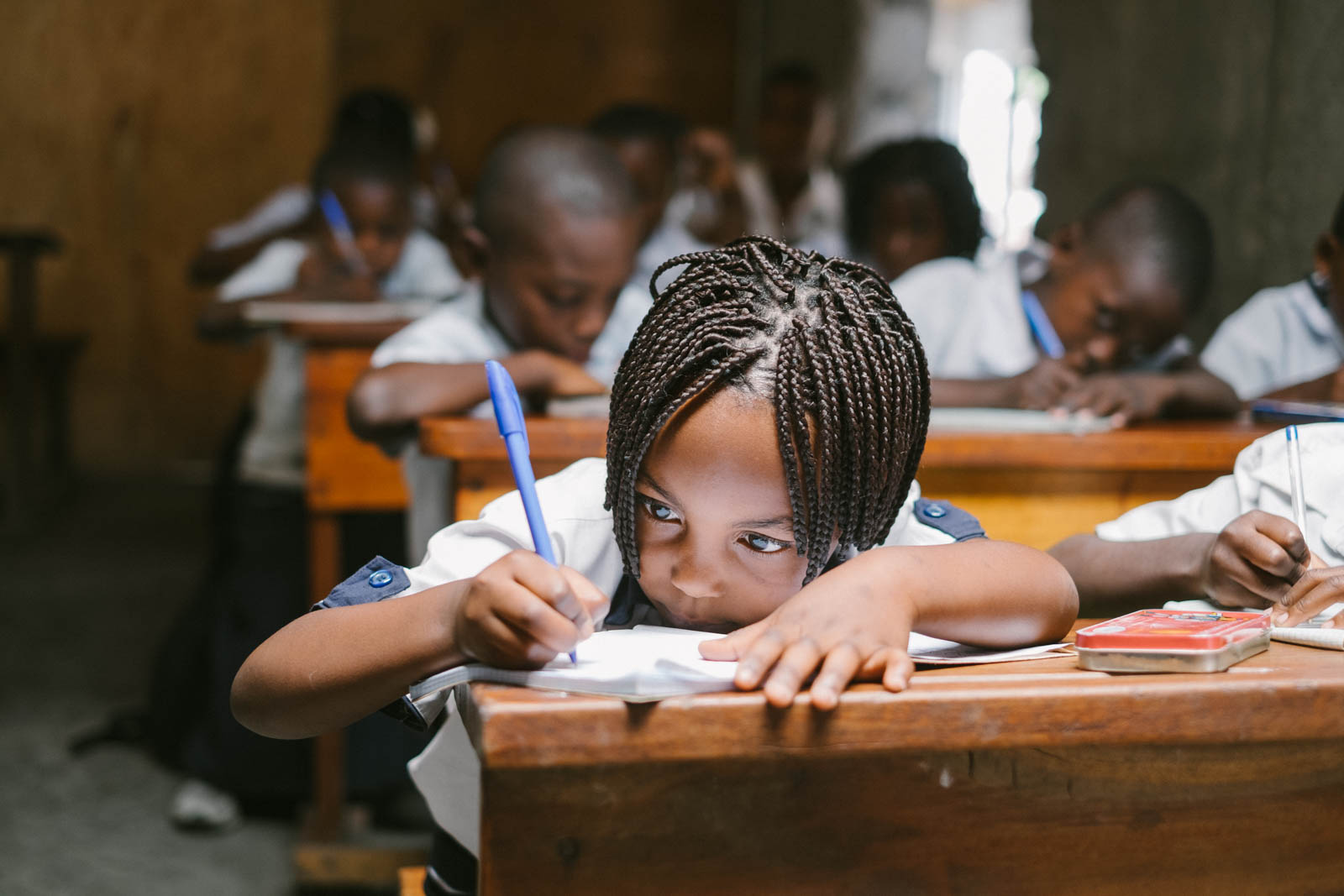
How did your mission to co-found such a non-profit start? What in your background led you here?
I started Justice Rising after more than ten years of experience working internationally in areas of conflict, hearing story after story on the devastating effects of war on children.
My goal was never to start a non-profit, my goal was to work with those who were the most vulnerable and underserved.
During a trip to Congo in 2009, I saw the devastation of a war that bore the title “bloodiest war since WWII”. I connected with incredible locals in the community and partnered with them to start building schools in areas that most people didn’t want to work in.
In the midst of so much hopelessness, I saw education as a hope for transformation for these communities. I learned that quality schools are the true catalyst for peace. I made it my mission to build schools that targeted not only the children, but the parents and teachers and leaders as well.
During the process, I also met my now-husband Edison Lee, who is an architect turned self-taught investment banker with similar experiences in areas of conflict. After starting three schools in Eastern Congo, together we turned our passion into a non-profit and started building Justice Rising into a scalable model that supports education in the midst of conflict around the world.
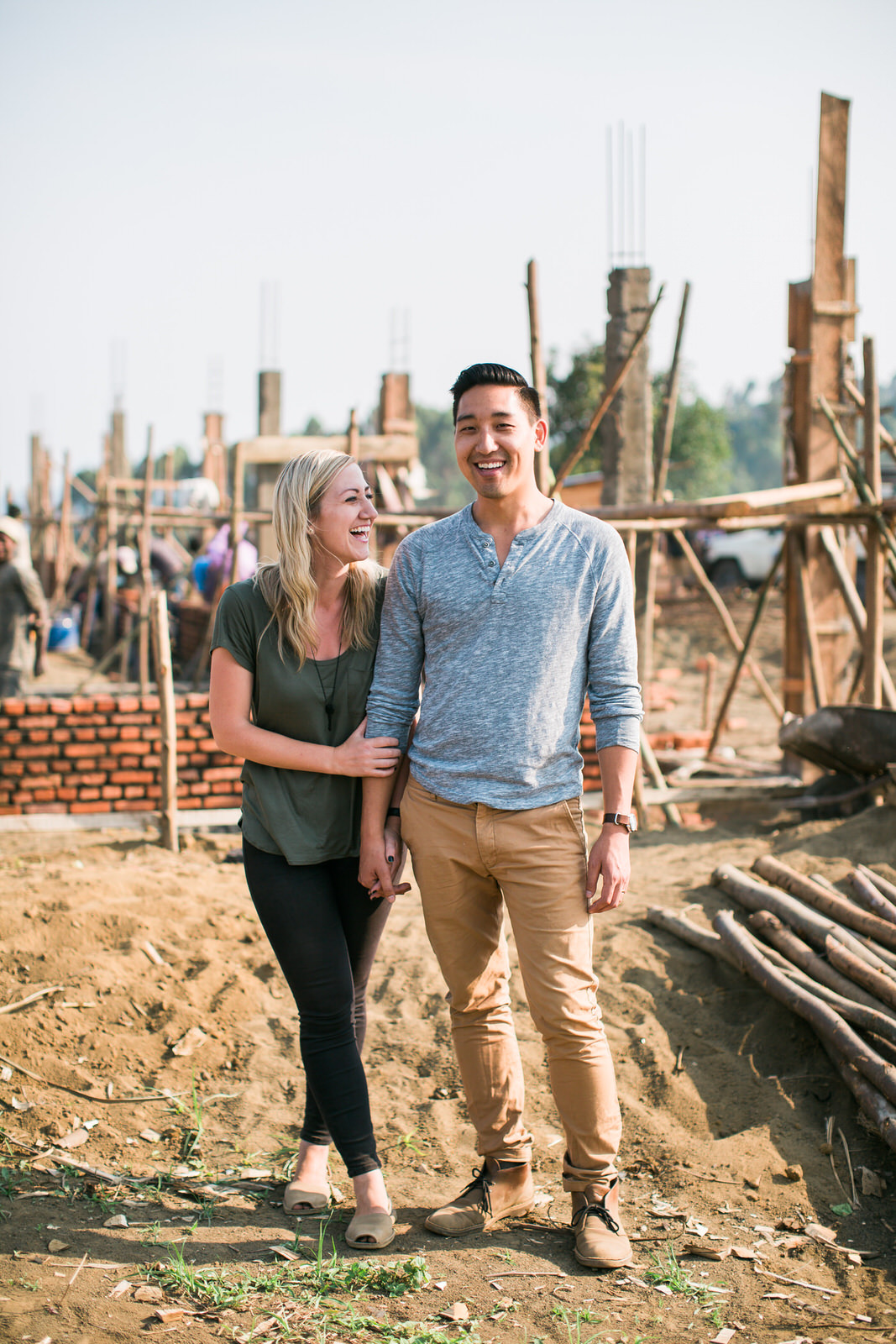
By going into the most dangerous war zones to build schools and provide education, Justice Rising is actively breaking the cycle of war and poverty. How have you already seen results of this cycle ending?
We’ve only been at this for a few years, but can already see an impact on the individuals in the community. In some of the most rural communities we work, we’ve seen a shift in the mindsets of those living there. At the beginning there was a lot of hopelessness, people were seeing the cycles of war repeat and out of frustration, wanted to respond with violence, but things have changed since.
An example of that is of a boy we work with in our Leadership League, a sports group for ex-child soldiers and at-risk youth. His name is Jackson. He shared the story of how war entered his village when he was younger and as he was fleeing, he saw many of his friends and family members killed in front of him. He was displaced for years and when the conflict started settling down, he returned to his village and tried to start his life over. He moved into a small house, and started attending the Justice Rising Leadership League. He learned about forgiveness and healing from his trauma, and building a peaceful life.
After a while, he saw that there were some people who moved into his neighborhood who were the perpetrators of the murders he saw, individuals that had killed his friends and family. Knowing there would be no justice by the legal system in his community, he wanted to take the matter into his own hands and kill those that had killed those closest to him. But as he attended our trauma sessions, the leaders in the League walked with him through his pain and helped him to forgive the murderers. “I’m not only able to forgive them, I’m able to live in peace with them. I’m able to overcome my pain and love them as my neighbors,” he told us. Stories like his show us that leaning into love and pressing into peace are the first steps towards truly breaking the cycle of war.
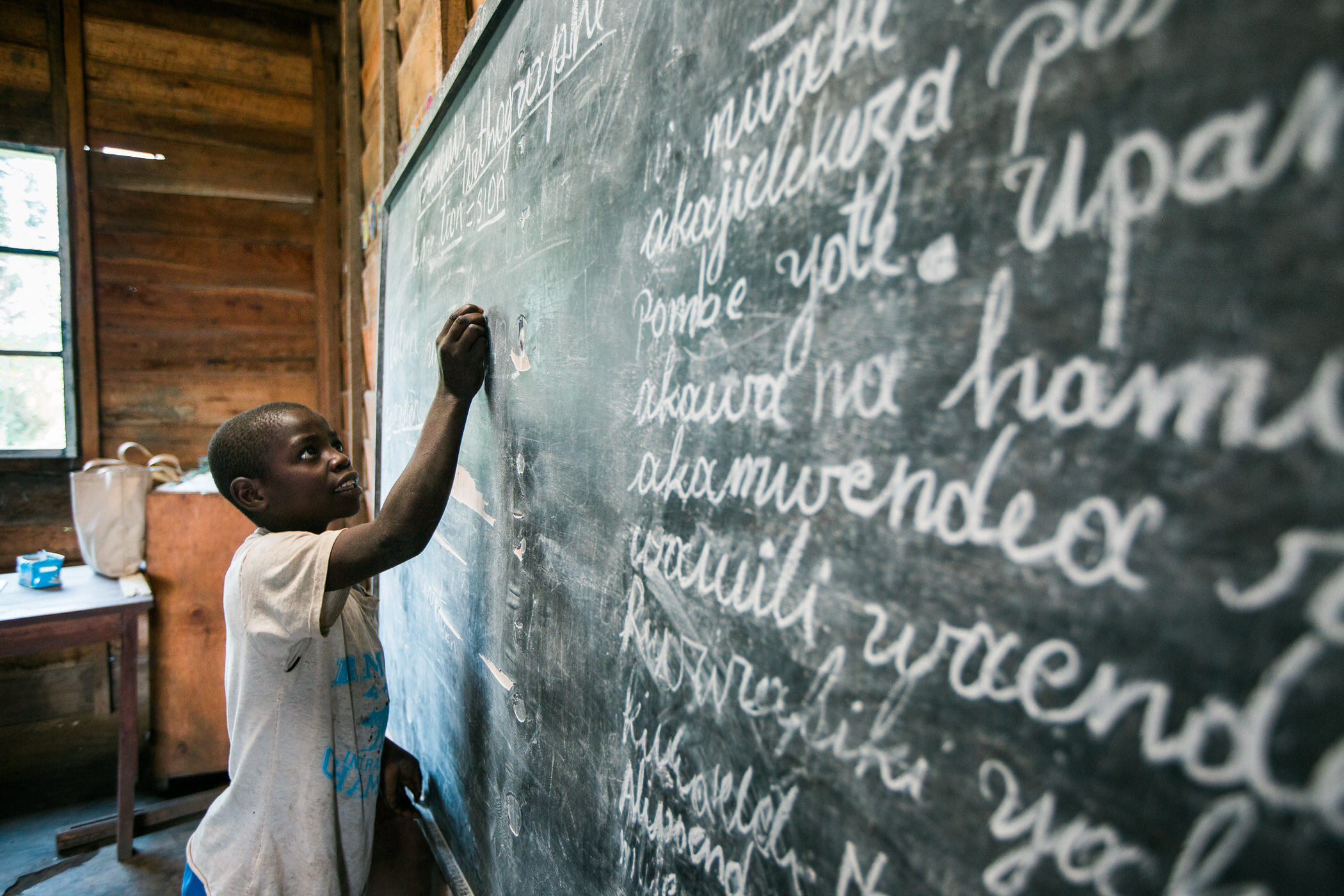
At Yellow, we believe that work isn’t just a career, but how you find and make meaning in this world. What are your views on how we can continue creating purposeful work throughout our lives?
I felt my calling at a really young age. I was 10 years old, living in Canada, and hearing about the war raging in the Congo, the rape capitol of the world, and I knew I needed to dedicate my life to bringing peace to war torn nations. I spent the next two plus decades orienting my life around this idea, eventually landing on education as my viable way to contribute to the peacemaking process.
Finding your purpose, then honing in on exactly how and what you can contribute, is how you can be intentional with creating meaning in the world.
It may not be moving to a war zone, but by making daily efforts to use your talents to give back, to bring hope to someone who needs it or make an impact to those who are desperate for a helping hand, those are the meaningful moments that bring change to the world.
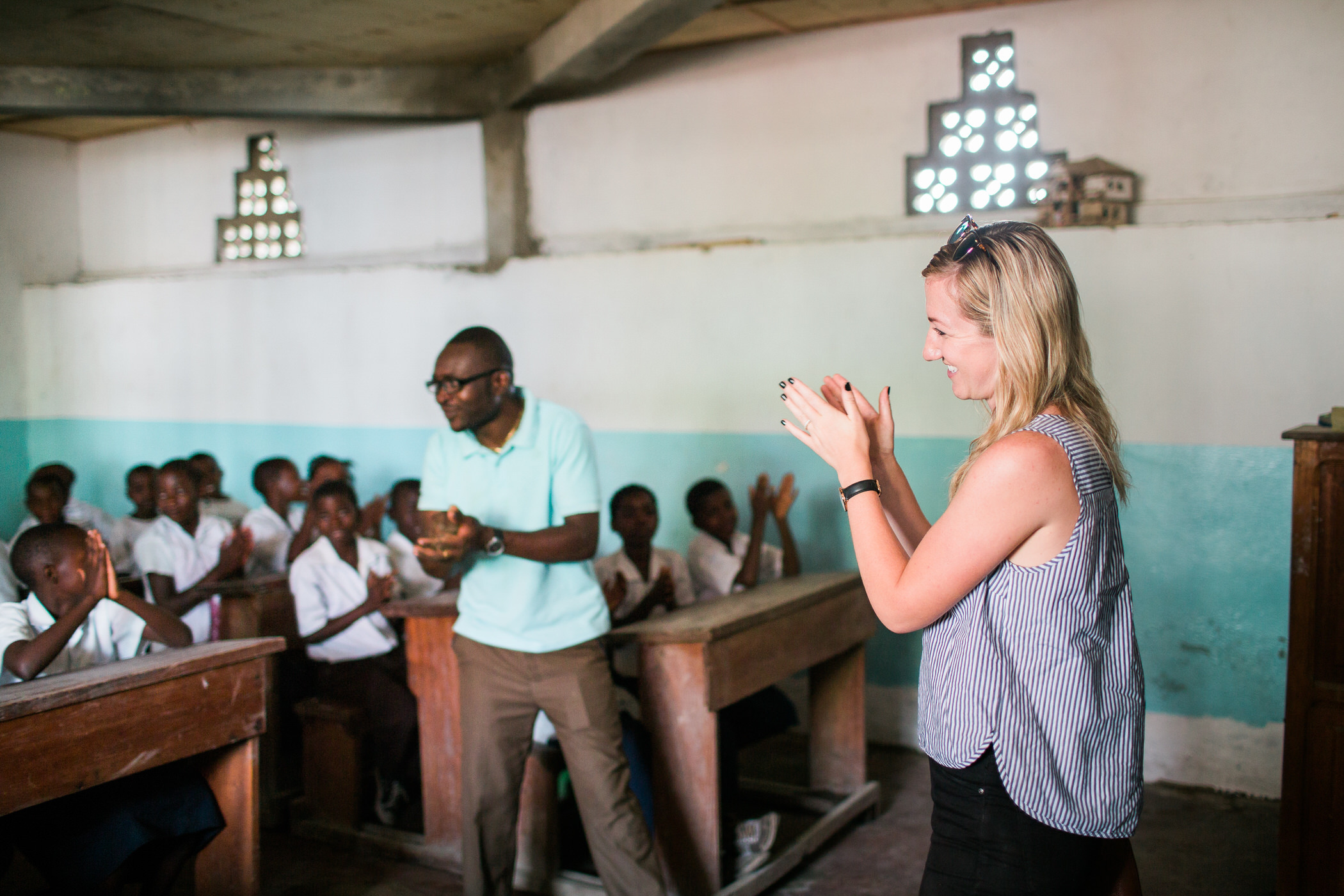
I’m sure you must have so many stories from the children you’ve worked with, but is there one in particular you could share that stands out as especially powerful?
During some of the earlier trips to the rural villages in Eastern Congo, I met a young girl named Sipé. She had experienced such extreme trauma as a young child that her mental state began to fray and she became mentally slower than the rest of the kids. She was maybe five and couldn’t speak, and other kids used to tease her. But I loved Sipé, she soon became “my girl” and even started calling me “Mama” as the only word she spoke.
Wherever I went, Sipé was always there too. We were a package deal. Then one trip I left to return to the city for a while and came back a couple months later. When I arrived it was the first time our car wasn’t greeted by her little voice squeaking out, “Mama.” As we unloaded our car, one of our community members pulled me aside and said they had terrible news, Sipé had died.
During the last couple of months, war broke out in the area, she explained. During a heavy rebel raid everyone had fled up a mountain to escape being killed and were guarded by a group of UN peacekeepers. But the area was small and overcrowded and very dirty. Sipé caught a bought of diarrhea and got very sick. Within a week, the diarrhea killed her.
I immediately broke down with uncontrollable sobs. My sweet girl, how could she have died of such a preventable illness?
The story haunted me and I felt I owed Sipé justice. This only grew my resolve to find the hardest hit areas and continue to educate the communities with the goal of disrupting conflict. But not only that, educate communities on leadership, health, and responding to crisis. My heart will forever have a Sipé sized hole in it and I’ll work as long as I can to see that other girls just like her won’t have the same ending to their story.
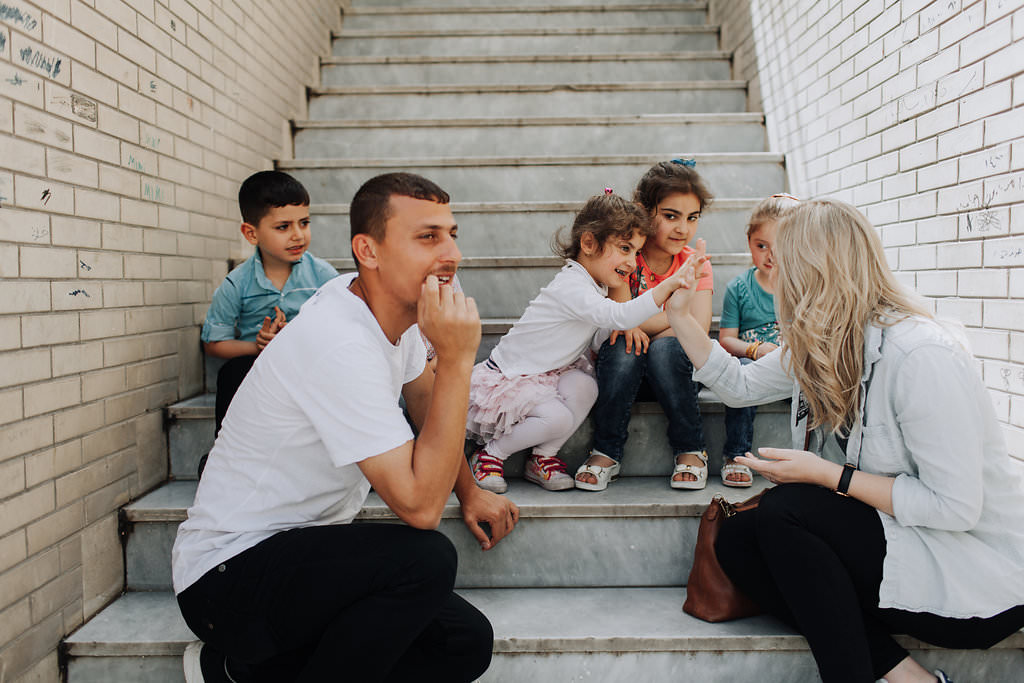
What tips would you give to any women passionate about starting a non-profit?
When you start a non-profit, you usually wear multiple hats for the first several years. You’re the fundraiser, program manager, human resources, and accountant. It’s pretty tiring, you work long hours and with little pay. Don’t let that discourage you. If you’re truly passionate about going after your dream, it’s worth it 100% of the time.
My practical advice: take a business course.
Learn the financial side of things, even if you have someone else doing your books, being able to understand and communicate the impact of your donor dollars is a HUGE asset to your work.
This month at Yellow, our focus is Belong. In your work and life, how have you seen connection and community allow individuals to thrive?
Working in such harsh environments, I believe that the only way that my husband, our team, and myself are able to do what we do because of the incredible community that surrounds us.
When the going gets tough, more often then not, the tough have a community that stands with them and is spurring them on. We’ve seen many people start working in difficult places or areas of conflict, and those that are able to go the distance and do it over multiple years, are those who have a solid base of sisters or friends or family walking life out with them. Many times this means they may not be physically present with us, but our community is always checking in with us, emailing us, or calling and helping us process the hardest parts of life.
If you want to do great things, find those that are able to push you, do life with you, stand with you, and won’t let you quit when you want to give up.
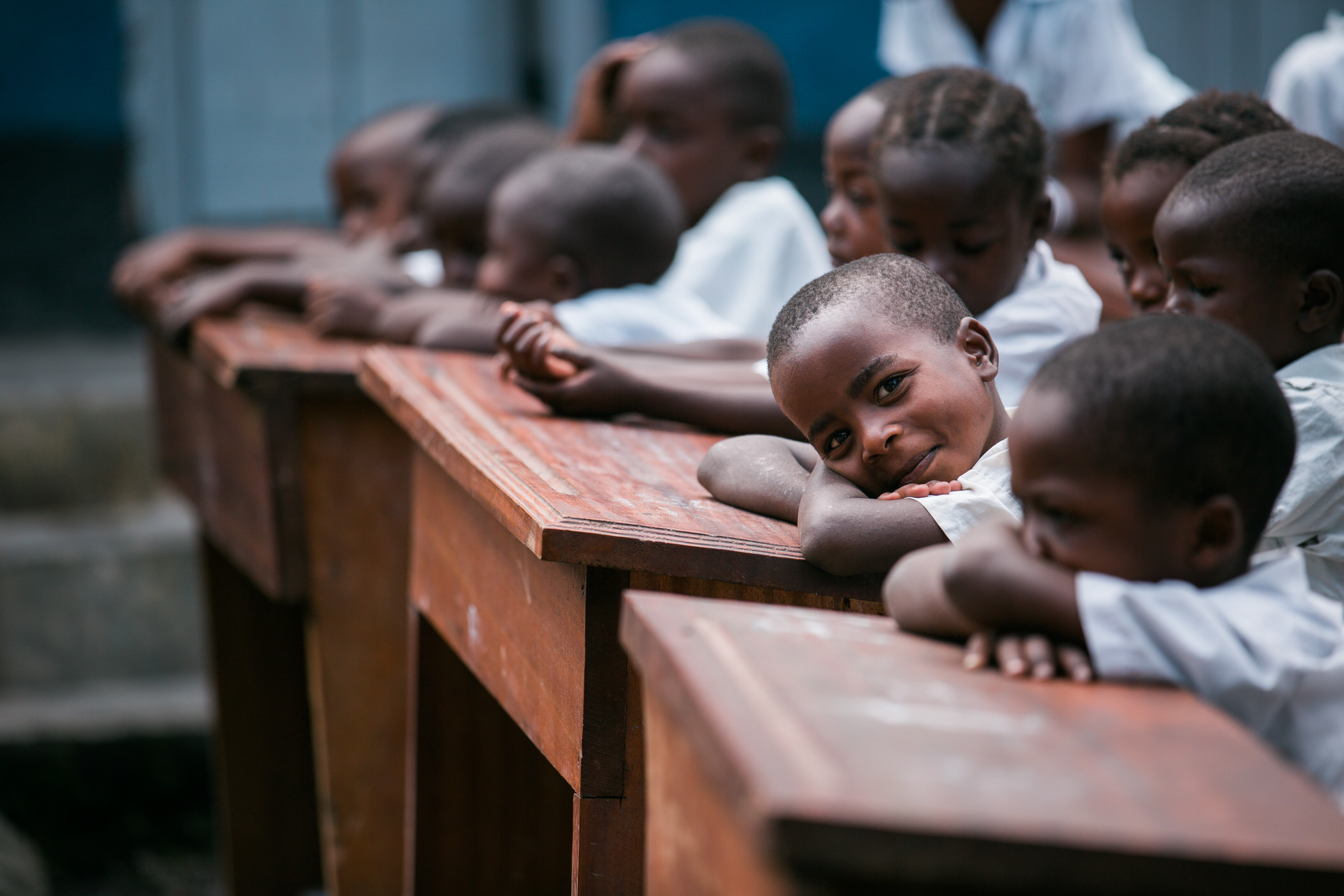
Do you have a quote that fuels your life?
“We’re too young to realize certain things are impossible, so we will do them anyway.” - William Wilberforce
What is your hope for the future of Justice Rising?
My hope for Justice Rising is that we would no longer be needed. That every child living in a post conflict zone would be living in peace, educated, and making steps towards creating a better future. As I know that may still be a while for most of the places we work, our vision for the future of Justice Rising is to grow to 40 schools by the end of the year 2020.
We’re expanding right now to Iraq and Syria, and our hope would be that we would have a strong presence in any country where violence is active.
That our schools would be raising up the leaders of tomorrow with students who are compassionate activists bringing in a new culture of peace and togetherness to disrupt the cycle of conflict and transform their nation.
Images courtesy of Justice Rising
